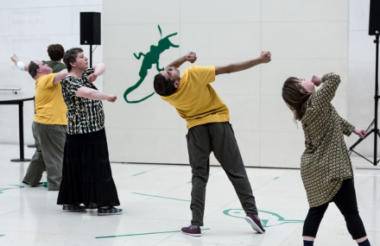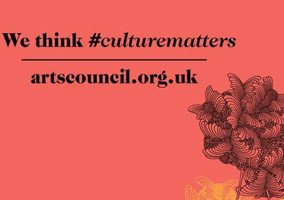The Arts Council England’s latest set of published annual accounts show that its total income fell slightly last year due to a fall in its share of National Lottery funding.
Arts Council England’s set of accounts covering the financial year 2016/17 have been published on the Department for Digital, Culture, Media and Sport’s website today, and show its total income fell by around 1 per cent to £724.2m.
Arts Council England said the main reason for this was a fall in the proceeds it received for the National Lottery. Arts Council England received £227.4m from the lottery in 2016/17, £40.9m less than in the previous year, and over £20m lower than was originally forecast.
It said that: “2015/16 was a record year in terms of Lottery ticket sales, but these fell by 8.8 per cent during 2016/17”. Camelot, which runs the National Lottery, announced it would be conducting an “in-depth review” of its strategy in June of this year, following the fall in lottery sales in the UK.
Arts Council England saw its total expenditure in 2016/17 increase by around £94m from the previous year. The main areas where Arts Council England spending increased was in its grant-in-aid grants, which increased to over £475m and in its net lottery grant commitments which saw an increase of over £60m, to £187.4m.
Arts Council England announced in late June that it is planning to invest a further £170m outside of London as part of its new grant making programme. It said, in total, it would be awarding more than £1.6bn worth of grants between 2018 and 2022 to some 831 organisations across England.
These figures were published in its accounts as ‘consolidated activities’ as the Arts Council England must publish separate accounts for its grant-in-aid and lottery distribution as “required by the secretary of state for culture, media and sport”.
Chief executive sees total remuneration increase
Darren Henley, chief executive of Arts Council England, saw his total remuneration package increase by £12,000 in the last financial year, from £158,000 to £170,000. All of the council’s executive directors saw their total remuneration packages increase in the last financial year.
According to a spokeswoman from Arts Council England, Henley had not been at the organisation for a full year and so "took advantage of a scheme which is available for all staff related to the buying and selling of holiday days," alongside a £340 pay rise, which all all of the organisation's directors also received.
Arts Council England’s accounts show that it made four compulsory redundancies in 2016/17, costing the organisation a total of £51,000 in exit packages. The organisation made just two redundancies in 2015/16, costing over £70,000.
The accounts also break down staff ethnicity across both the council’s national portfolio organisations and major partner museums. It found that 72 per cent of permanent staff identified as being white, with just 13 per cent coming from a black or minority ethnic background. The rest identified as 'unknown'.
The accounts said that Arts Council England is “moving in the right direction in relation to black and minority ethnic representation across permanent and contractual staff” in portfolio organisation, but admitted progress was “slower” across its partner museums.
The report also surveyed staff across both portfolio organisations and partner museums, and found that 4 per cent of permanent staff at both were disabled.
Related Articles












